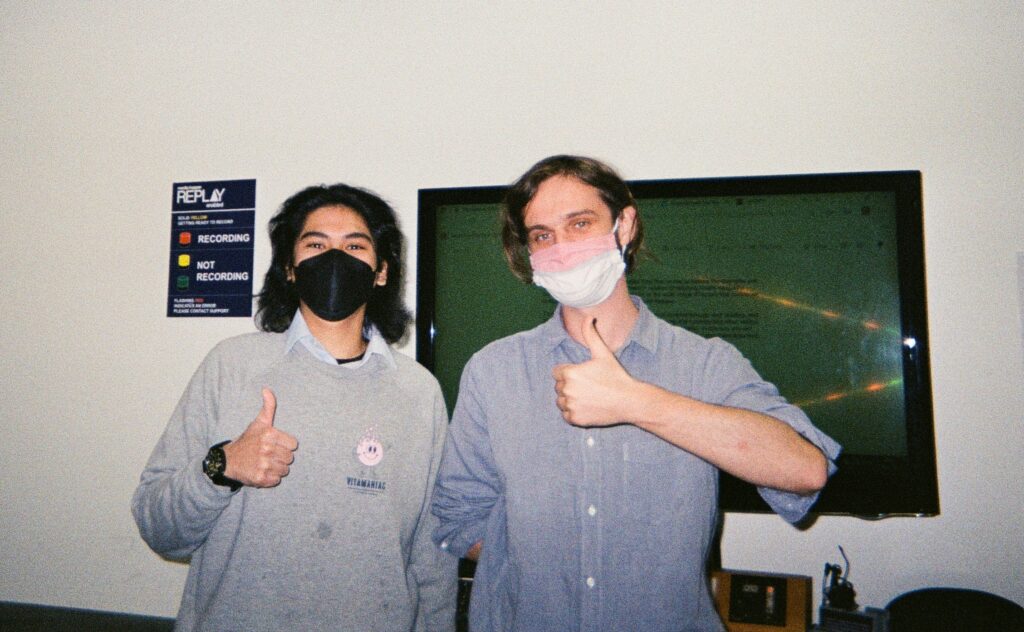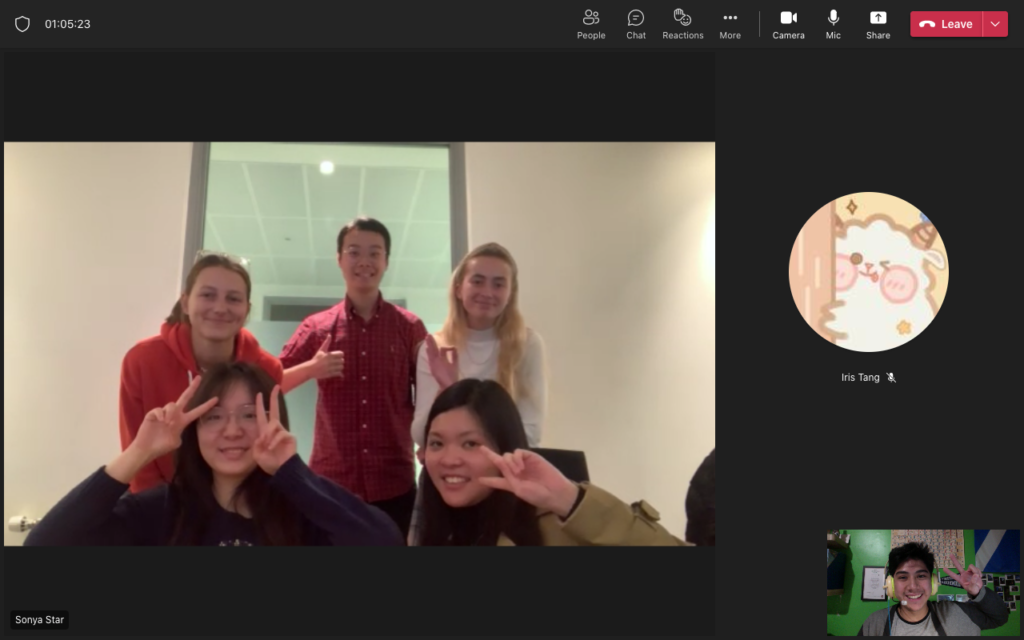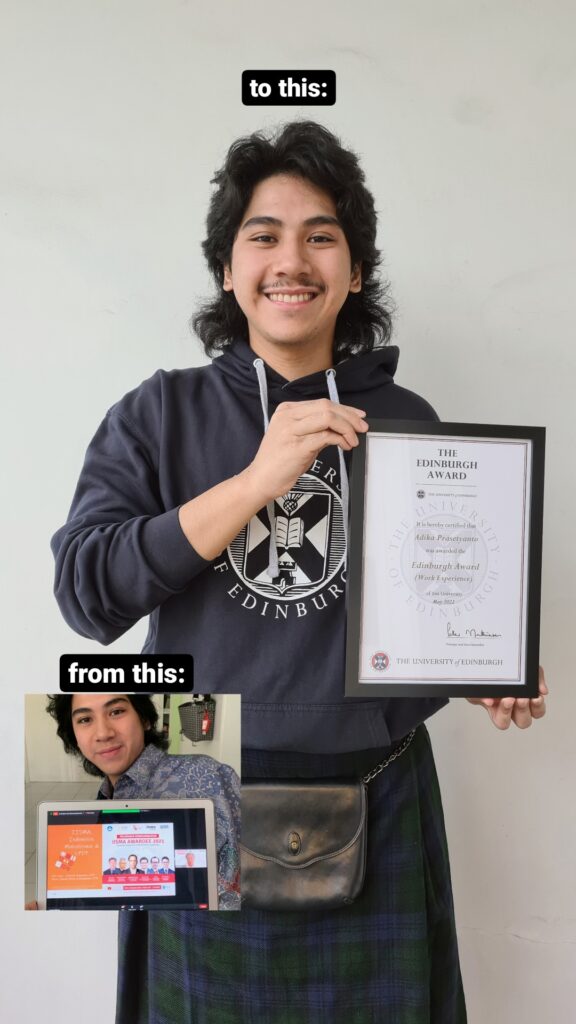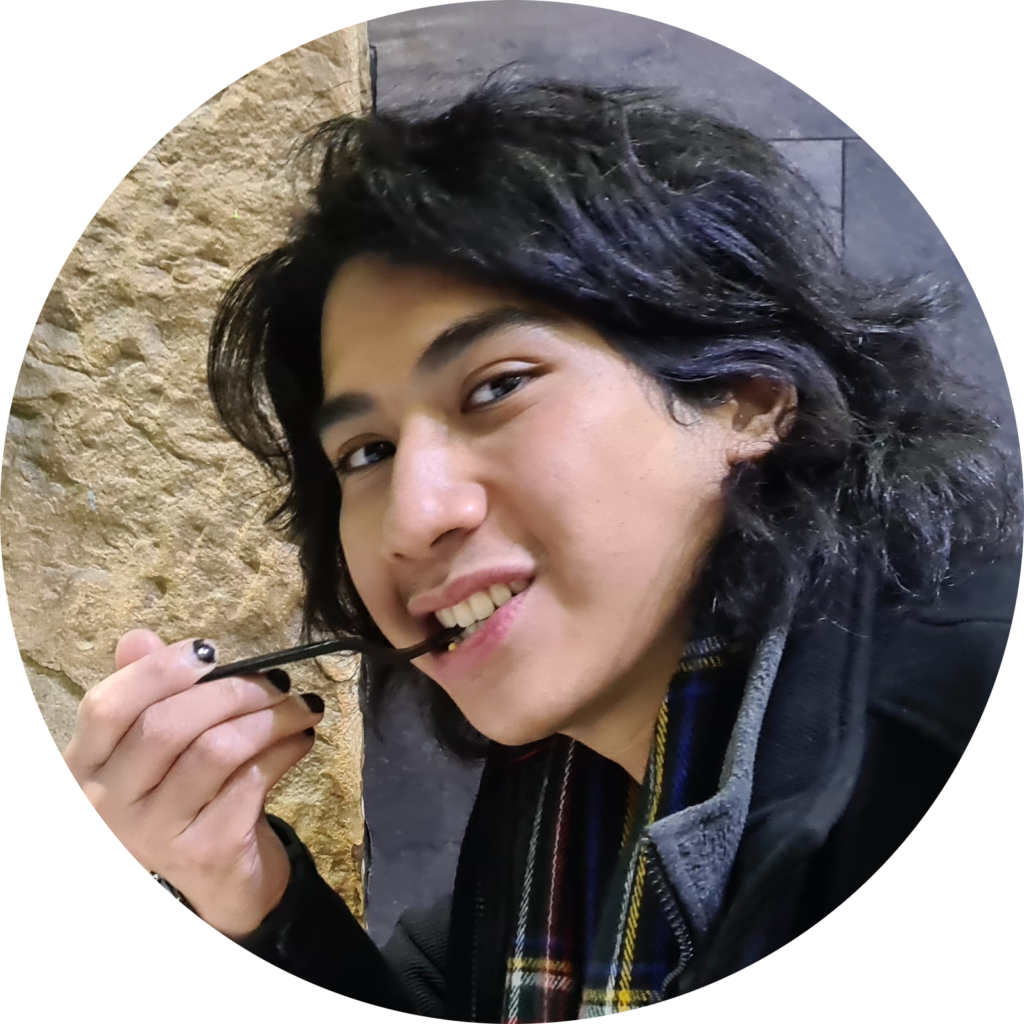Here’s to Adika, here’s to asking for something that you truly want, here’s to taking in new experiences and knowledge abroad, and here’s to seizing all the opportunities thrown in our way.
“It’s against all odds,” I said to my fellow University of Edinburgh IISMA awardee in our late-night Zoom catchup after months of not seeing each other.
She wondered and asked, “Why?”
With a lot of passion, I replied, “A computer science student from Indonesia was awarded a full study abroad scholarship from the government to one of the UK’s best universities for taking health courses. Then, thanks to the lead professor, I was allowed to be a part of her health research group even though I’m a UoE alumnus. If that’s not ‘against all odds’, I don’t know what is.”
Yeah, that’s the gist of my story. Sometimes I do wonder how I got this privilege. Did a genie grant my wish? Genies usually grant just 3 wishes. I’ve counted my blessings and it’s definitely more than 3. So it’s certainly not a genie.
The journey started when I was about 12 years old. I was enjoying my term break in Central Java. All of the sudden, the fun and joy had to be stopped. I had a stomach bug. I visited the hospital without any delay. Sitting and waiting to be called, I saw a young mother struggling to pay her son’s medical bills. A privilege that I’ve been taking for granted: paying medical bills. Her son was the same age as I was. The son was vulnerable and sickly, the mother carried his frail body back and forth across the hospital just to bow to the healthcare system. A middle-aged couple saw the mother endure this painful experience. The couple generously paid some of her son’s medical bills. As a kid, I knew this was shameful. What kind of healthcare system that works only after a good samaritan pays for someone else’s medical bills? An inhumane system, that is.
Knock, knock. An opportunity presented itself in May 2021. That opportunity made me answer this question: “Please outline your plans to engage with local and international communities during IISMA program using clear examples!”
What should I join? I thought to myself, my goal in Edinburgh is to learn about health. Why don’t I find a society about health? Duh. I did a quick Google search: “health societies Edinburgh University.” Eureka! I exclaimed to myself. One of the top Google results was something I knew for a fact I would be joining. A research project called Our Health. Non-health students — like myself can join this awesome research project. Not just that, the student researchers would collaborate with health organizations outside UoE by supporting them to solve problems the organizations deem important. What a project! Without a shadow of a doubt, I wrote Our Health as an answer to the essay question.
Well, I’m a Scotsman now, I proudly said to myself while opening the acceptance page for IISMA. I was fueled by pure excitement. I also had to keep my promise by joining Our Health. Introduce yourself to the professor, I thought to myself thinking it was the easiest thing to do while still being in my hometown. I felt exposed because I was doing something that I had never done before: sending a cold email. I was hoping I would get a quick response.
It was a dark November afternoon in Edinburgh. Months went by since my first email to the professor. I had been trying to email her a couple of times in the previous months, but to no avail. That cold November afternoon was full of self-criticism. I reflected I had done a lot of firsts and fun things in the preceding days, but I also wouldn’t expect a future Adika to say “thanks” to past Adika. I sense this hollow feeling of defeat as I hadn’t done anything to uplift my career and explore my passion. I wasn’t being hard on myself. I felt like I wasted this one-of-a-kind academic journey.
Out of the blue, I heard a “ding” from Outlook. Probably my professor is just updating a module on Learn. Nothing new, I thought dismissively. A few moments later, I opened Outlook. Hold up, I excitedly said to myself. An invitation that I wouldn’t have ever imagined I would receive. I was invited to a call with a professor. Not just any professor, but the professor that I had been trying to message for months. Without missing a beat I accepted that calendar invitation and celebrated this achievement.

Health and he introduced Adika to Our Health’s lead professor.
In the call, the professor told everyone that the project would be focusing on helping an arthritis charity and the project started in the succeeding semester. Yup, the next semester. The semester that I wouldn’t be a student at UoE anymore. My mind was all over the place and it passed the 5 stages of grief at once. I was occupied with some uncooperative thoughts. It might’ve hindered my success and disallowed me to ask her permission to join the project. Well screw it, if I couldn’t join, one door closes another door might open. Try to be a bit optimistic, I thought.
Accompanied with great apprehension I asked the important question, “can I still join this program even though I’m not a student at Edinburgh?”
She answered with a resounding “Yes”. What a huge relief.
It was January of the next year. A different setting. No cold weather, but a hot and humid climate that I haven’t gotten used to. Home sweet home.
I was going back and forth from my room to my sister’s room. My heart was racing. I couldn’t compose myself. The research meeting starts late at night. I had prepared everything, even the pep that I had. Anxiety and nervousness have controlled my body. It was certainly the pinnacle of my academic career, but working together with a bunch of smart kids made me feel that I’m lucky and inadequate at the same time.
“Transform that nervousness into excitement,” calmly my sister said.
“How am I supposed to do that?” I asked her back in confusion.
The clock struck 10 PM. The long-awaited research project meeting comes. Unfamiliar faces. Everyone introduced themselves. Most of them said they were taking biomedicine. I heard one saying they were taking art and another taking business. Truly a diverse group, I thought. Anxiety kept bothering me. As the meeting continued, my mind knew the meeting went better than expected. No funny business which my anxiety had injected into my mind. It gave me a little sense of calm.

Our research partner’s struggles were captured by their emotive narration. I couldn’t even imagine how the patients can experience this dreadful condition every day. The pain was not only felt physically — they also would wrestle with the healthcare system to receive adequate, not lavish, pain management strategies. Being the guide to our partner was my role. As guides, relaying their struggles to a wider audience was our duty. Guides also did not have the prerogative to prioritize their challenges for them. It was theirs. Each patient’s story had embedded themes. Distinctive themes the patients might’ve not realized was important for them to directly convey. The themes that had been prioritized would act as a beacon moving forward, which would encapsulate the whole goal of the research: living with arthritis.
Familiarity popped up as the project progressed. Emotional touchpoints workshop, grouping different struggles into collective themes, and writing fictional stories inspired by patients’ experiences. These are actually tools for my future career. As a future service designer, I knew that these skills are essential since it puts the patients at the heart of the design process. Sometimes, it’s hard to believe that this research project was started as something I would do to spend my spare time in Edinburgh and ended up as a learning process and a stepping stone for my career while I’m in my hometown.
Just being a student researcher at Our Health was something to be extremely grateful for. The cherry on top of this whole journey was receiving recognition for my effort from my alma mater. In May, I was awarded the Edinburgh Award. This award really helped me to map the skills that I wanted to improve and identify how to accomplish those at the end of the project. I wrote a skill that was actually an integral part of the research, yet at first, I didn’t have a clue about how to implement that skill. It was the design thinking skill. This award also connected me to students outside of the project. We had online webinars — which I had to wake up after midnight to join — to discuss our projects and reflect on our performances. This award helped me to reflect, network, and be appreciative of the things that I’ve accomplished.
The whole process from applying for the research project, partnering up with the arthritis charity, listening to what the charity needs, and receiving an award from my alma mater made me think, I’m a lucky visiting student at UoE — and the journey continues.

Adika shows his Edinburgh Award while wearing the kilt and still having that awesome mullet.
Bottom left, Adika shows his achievement of being an IISMA awardee. Here he compares his achievements using the trend, ‘from this – to this’.

Created by : Adika Cafaizi Prasetyanto
Adika (he/him) is a computer science student at Universitas Gadjah Mada and a health student researcher at the University of Edinburgh. He aspires to be a service designer in healthcare. He loves to bring joy to other people by cooking them food and boogieing to 80s disco songs.
